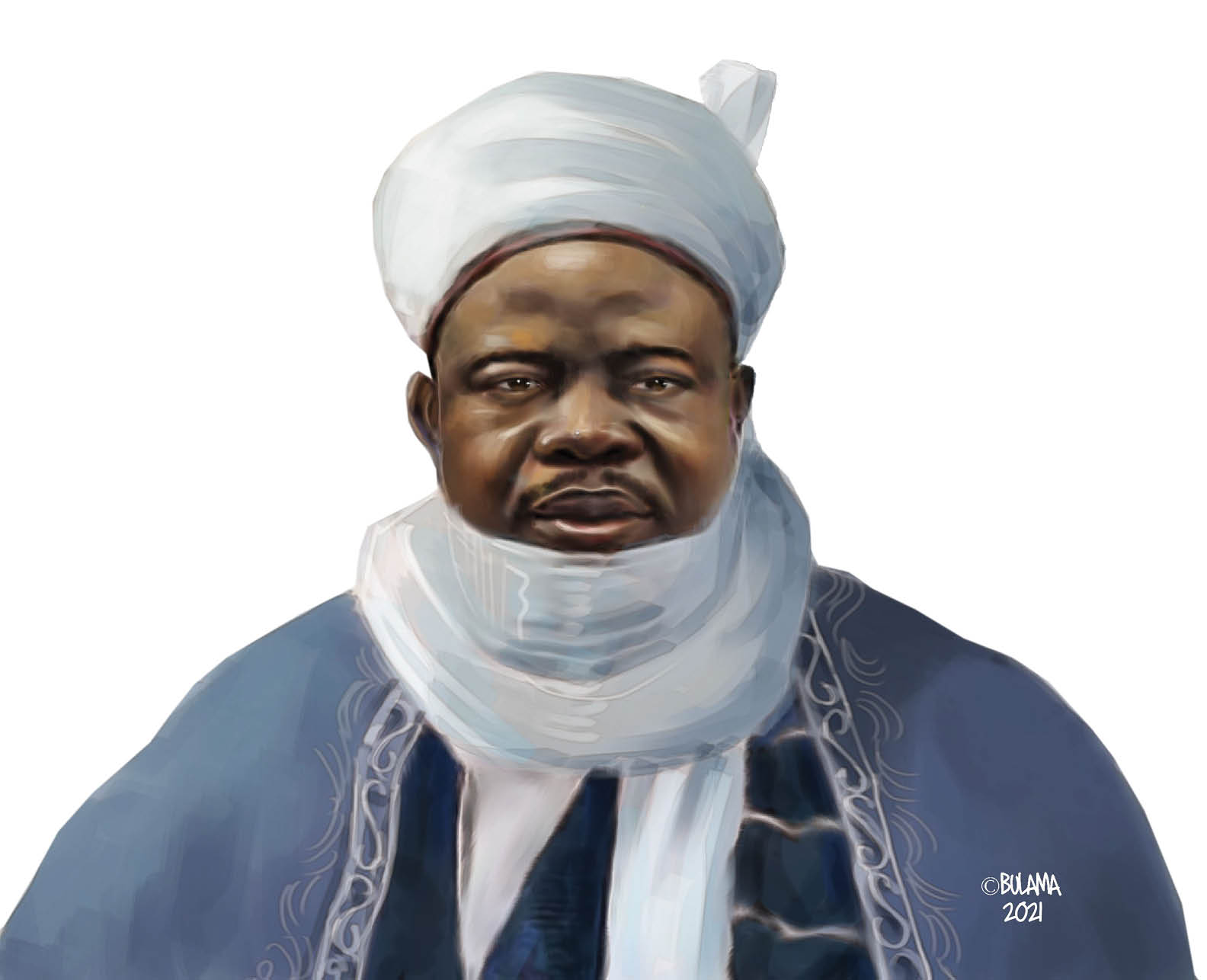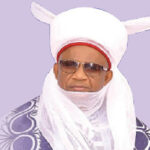“Danladi, ba bo report-card nye wo dan (Danladi, where is your report card?)” His deep-toned Nupe accent interrupted my thoughts as I sat on the bare floor, with my legs crossed, waiting for him to criticise my end-of-the-year report and possibly scold me for coming 3rd in Primary 3.
The living room, which served as our ‘courtroom,’ was relatively small. It had two pillars separating where he would usually lay a mat with two old pillows. This ‘courtroom’ was no joke to my siblings and I because we always got summoned.
- 2023: South-West women asks Yahaya Bello to declare for presidency
How ministry used 1971 Decree to dissolve sports federations
The modest four-bedroom bungalow we all lived in was clearly a far cry from what my father was used to while he was minister and the 10th Etsu Nupe. It was, however, the place he lived 10 years before his demise in 1984.
I was born after my father abdicated the Etsu throne in 1969 and had the privilege, along with my siblings born within that period to spend our formative years under his tutelage and close scrutiny.
The three inner-rooms of the bungalow were shared by my mothers, who took turns to travel from Bida to Sokoto regularly, and all my siblings living in Sokoto at that time. My father had a separate room to himself and regularly came out to the living room, which was sparsely furnished to receive guests and read newspapers.
“Toh wa kokari jin (Well, you have tried),’’ he replied in Nupe few minutes after studying my report card. Undoubtedly, the minutes prior to his comments felt like eternity for me. I had expected to be reprimanded, knowing my father’s perfectionist tendencies and also because he had made it clear to us that education was the only ‘fortune’ he would leave behind for us. He spent the next few minutes explaining the need for me to take my studies seriously and why it was instrumental to my future. I, in turn, promised never to disappoint him.
This was a common scenario for me and my siblings. To us, our father was a man of deep faith who was at peace with his destiny and had taken every experience as an opportunity to learn and impact. He was very much loved by his neighbours, especially old Baba, who lived in the house opposite ours. They were probably aware of his status and hence, the respect they accorded him.
Growing up with my father and understudying his life was probably the best experience for an inquisitive child like me. As these were my formative years, the experience formed the cornerstone of my life principles.
We were often referred to by our neighbours as princes and princesses, but we knew we did not have those privileges. Most of us attended Turaki Primary School, Sokoto, a local public school situated 4 to 5 kilometers from our house. We took pride in walking everyday, sometime with barefoot, to the school. In retrospect, I don’t recall us missing school or resuming late.
The evenings at home were the best part of the day. Our mothers were usually seated around the house compound conversing and doing their trade which was typically knitting yarn to make caps and hats. My siblings and I would surround them having dinner and helping out with the knitting. The mothers would then narrate moonlight tales to attract the children to assist them. It was also usual for the children to compete in helping the mother who had the best stories. Our rewards were usually big pieces of meat for the dinner and good stories.
This relatively common atmosphere in those days fostered a deep sense of unity among my siblings and me. On some occasions, my father would come out to listen to some of the stories, teasing our mothers on their knowledge of Nupe moonlight stories.
My father’s favourite pastime was reading the New Nigerian newspapers in the mornings and late afternoons after As’r prayers. He always read so intently that it was seen as a taboo to interrupt him whenever he read the dailies. He also enjoyed listening to a Nupe Islamic preacher, Alhaji Umari Eggan-chi, whose Nupe narration of the Holy Qur’an was famous at that time. His favourite surah was Suratul Yusuf, with the sweet Nupe narration of the young prophet’s tribulations in the hands of his siblings and his eventual triumph, becoming the prime minister of Egypt. My father deeply loved Alhaji Umaru and married off one of my sisters to the scholar’s house.
As an ex-minister, we often received VIPs. One Saturday morning, sometime in the 1980s, we awoke to commence thorough house cleaning. We soon realised that the then president, Alhaji Shehu Shagari, was to visit. I remember watching he and my father discuss. I soon learnt that they had been colleagues in Balewa’s government during the first republic.
Allah statement is in Surah 87:1-3 was truly relevant and comforting. “Exalt the name of your Lord, the Most High, who created and proportioned and who destined and guided!’’
One of our proudest moments was when he was conferred with the National Award of OFR following the outcome of a federal government committee which investigated and exonerated him of all allegations during his Etsu-ship. It was a special moment, even for us as children. I am certain my father wished they allowed him visit Kin Nupe (Nupe Kingdom) even for once. Though he never mentioned it to us, we knew it was a desire of his to visit at least once before his demise. Unfortunately, this desire was not met.
Another happy moment for us was when he was appointed a board chairman of the Nigerian Salt Company of Nigeria Plc. He would come back from his many trips to Lagos with Geisha, sardine and other gifts.
It was a testament for his complete faith in the Almighty Allah that he accepted his destiny with admirable dignity, and despite being absolved of all the allegations, he refused entreaties to seek legal redress that would grant him freedom to his place of birth. However, we were delighted to have his body returned to Bida in Kin Nupe after his death in 1984.
As I grew up and learnt of my father’s former positions and our modest lifestyle, I sometimes wondered if my father’s wealth was hidden for us to inherit when he passed on. I would later be disappointed after he passed and there was no wealth to inherit. His words, moral standards, quest for knowledge, education and role modelling were his legacies.
The recent award from the Barewa Old Boys Association (BOBA) under the distinguished leadership of some fathers of modern Nigeria was, therefore, a touching moment for me, my siblings, and indeed, the entire Nupe Kingdom. This is particularly since the award was given more than 36 years after he passed. The award meant a lot to us and reminded us that the memories of this imperfect but elegant personality remain in the minds of his contemporaries.
As we thank the BOBA for waking us up to remind ourselves of the lives and memories of this great man and hero, I pray Allah Subhana Wata to bless his soul, and that he continues to rest in Aljanna Firdausi.
Ismaila Usman Sarki, the Sarkin Arewa Nupe, wrote from Brunei Darus

 Join Daily Trust WhatsApp Community For Quick Access To News and Happenings Around You.
Join Daily Trust WhatsApp Community For Quick Access To News and Happenings Around You.

